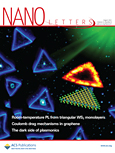
With this post, we’re going to try a new feature: Ask Retraction Watch. What we really mean by that is ask Retraction Watch’s readers, who time and time again have shared their expertise and made us smarter. So if you have questions you’d like posed in this space, find our contact info here.
Here goes. A reader asks: Continue reading Ask Retraction Watch: Is this plagiarism?








